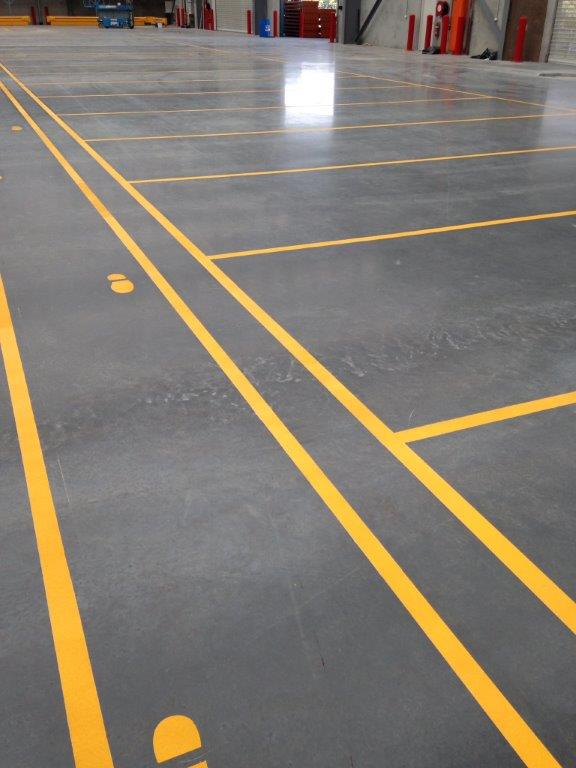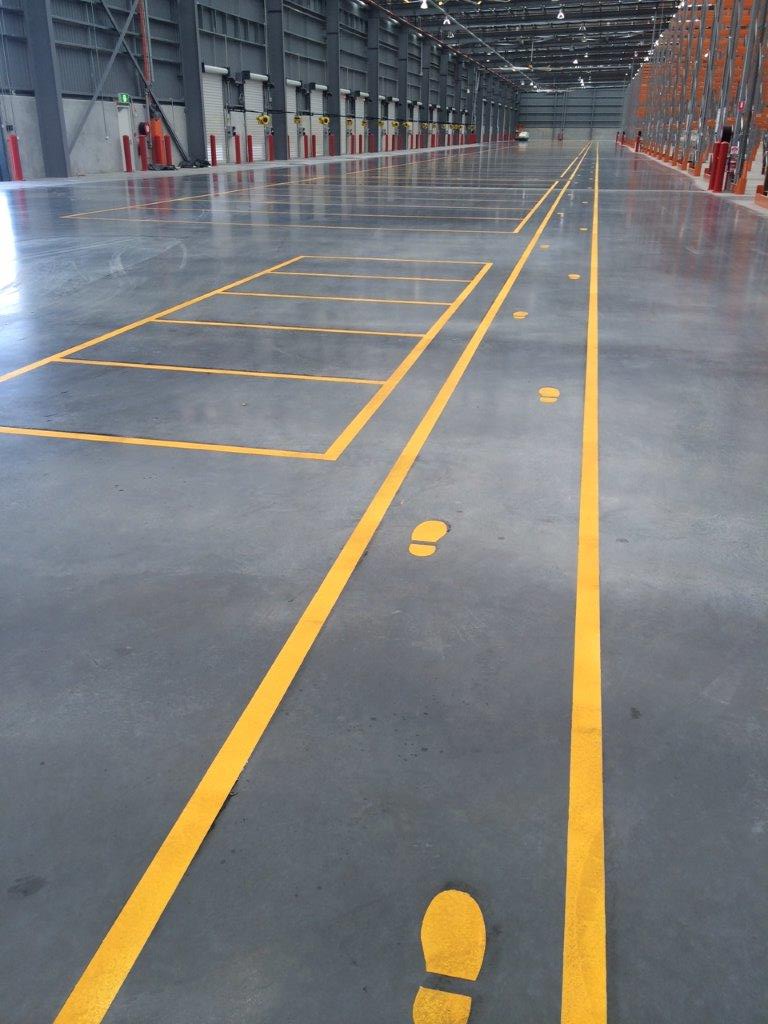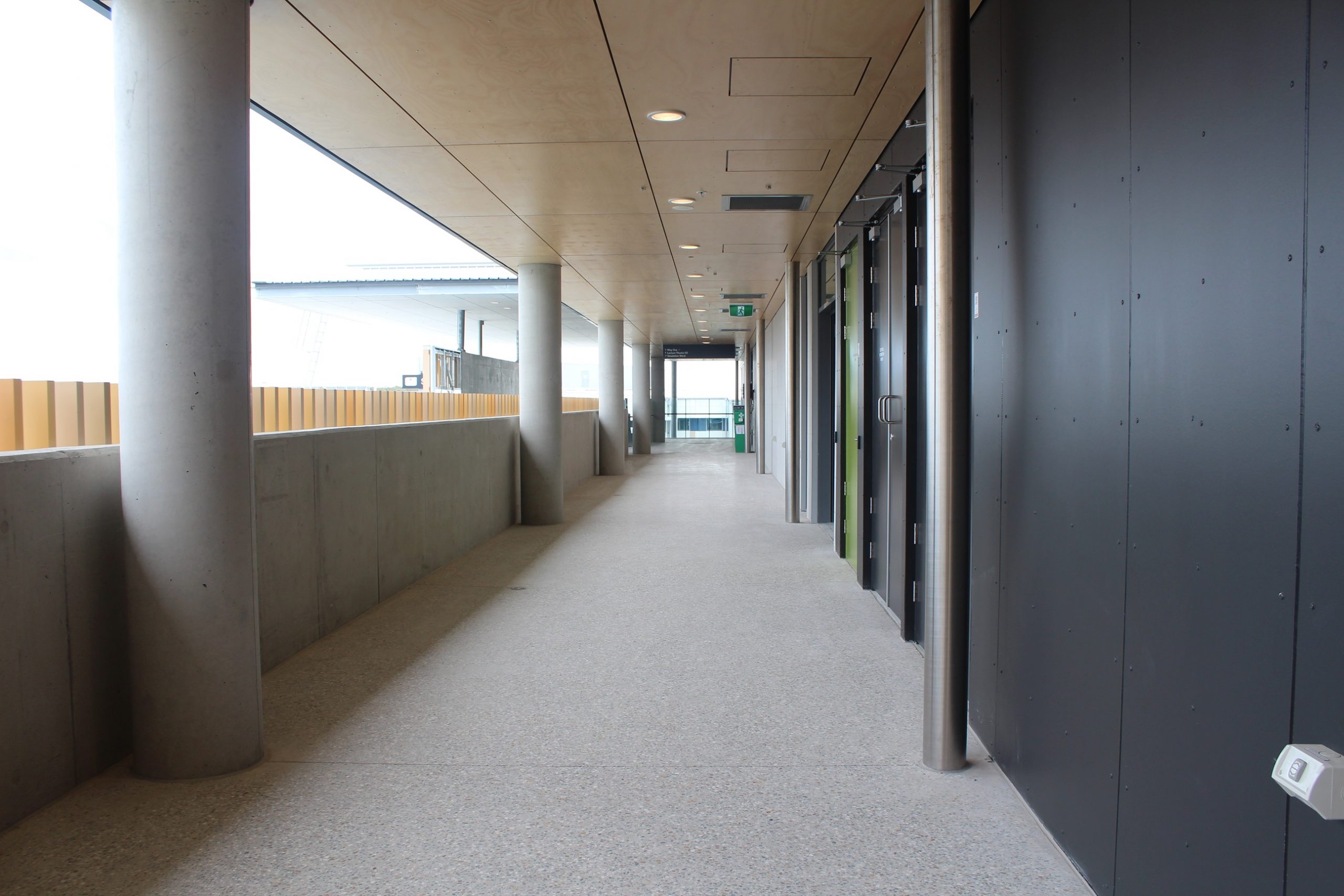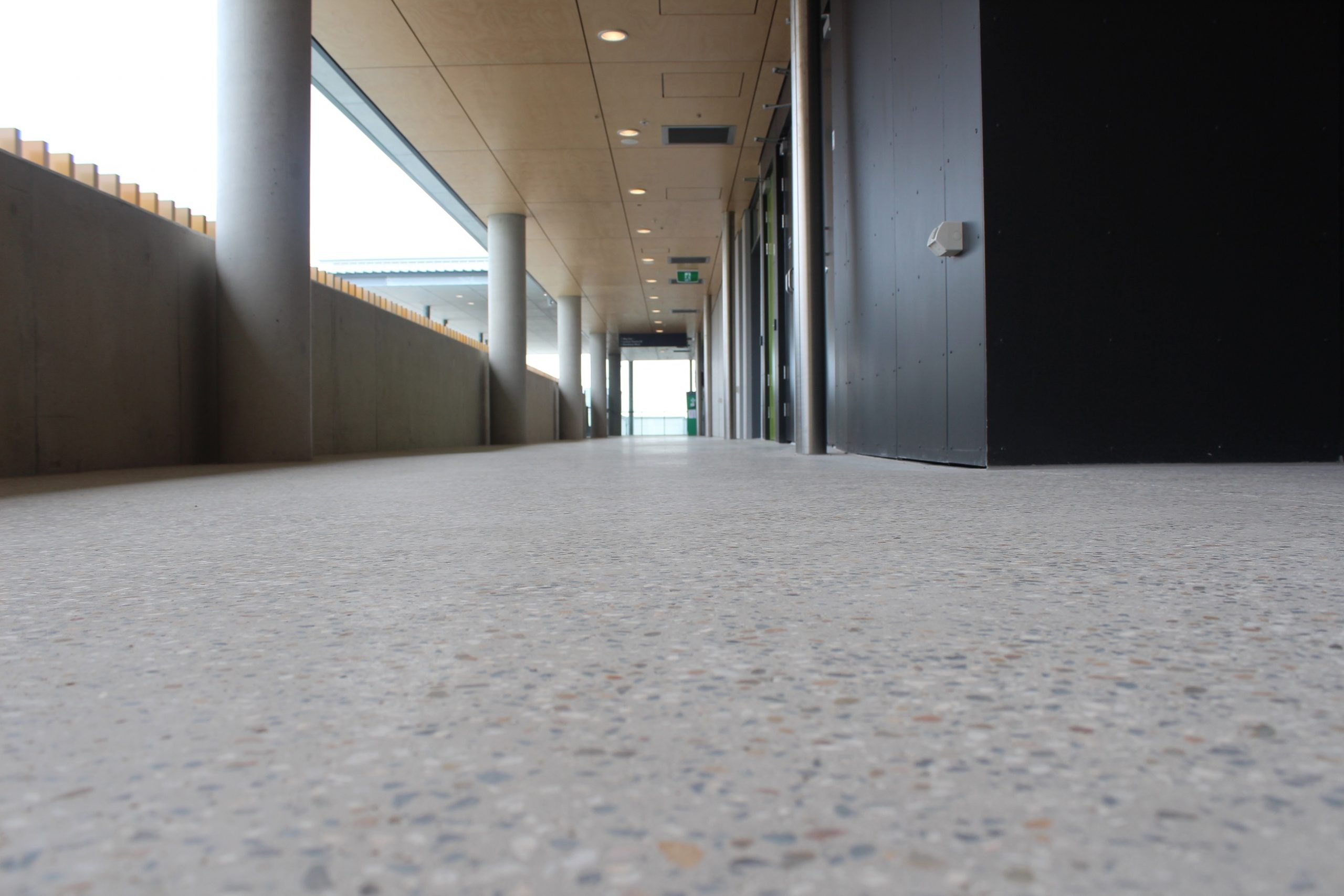Concrete Sealing
Commercial & residential
Concrete Sealing
Concretis has a wealth of experience in the application of concrete sealants for all Residential, Commercial and Industrial projects.
Penetrative Sealers
As the name suggests, penetrative sealers penetrate into the concrete substrate. This type of sealer will not affect the surface appearance of the concrete and they are generally used to make the structure less porous, by limiting the amount of water and pollutants absorbed by the concrete. Penetrative sealers help protect the concrete, but as they do not sit on the surface of the concrete, they will not negatively impact upon the slip resistance of the finish.
Surface Sealers
Surface sealers/ hard sealers sit on the surface of the concrete and include acrylic and polyurethane sealants (both water-based and solvent-based formulas are available). There are numerous types of surface sealers and these can be used to:
- Enhance the look of decorative concrete (e.g. polished concrete, coloured concrete, exposed concrete)
- Protect the concrete in high traffic areas
- Protect concrete structures (e.g. concrete benches, furniture, and benchtops)
- Provide specific resistance (e.g. anti-graffiti, chlorine repellent, fuels, and oil resistant)
- Can also be mixed with additives (e.g. powdered glass or glass beads to improve grip and slip resistance of surface)
Concrete Curing
Properly curing concrete is essential to achieving a professional finish and ensuring the concrete reaches the desired strength. Having worked on many commercial, industrial, and large scale residential projects, we are experienced in using a variety of curing compounds to meet the technical requirements of the job.
We have links with leading manufacturers of curing products and can work with you to achieve a guaranteed impermeable finish. Selecting the best curing compound for a project must be done carefully and for the best result, should be applied by qualified professionals. We can assist you with choosing the best product and guide you through our application methods and process.
Application
To get the best finish on your surface it is best to have sealants and curing products applied by qualified professionals. Contact us to discuss your sealing and curing requirements, we have the technical knowledge and can guide you on the best product to use and suggested maintenance program.
Contact us for a free quote &
assessment today
1300 733 813
Gold Coast showroom
3/134 Siganto Drive, Helensvale, Qld 4212Monday to Friday
8.00am - 4.30pm




